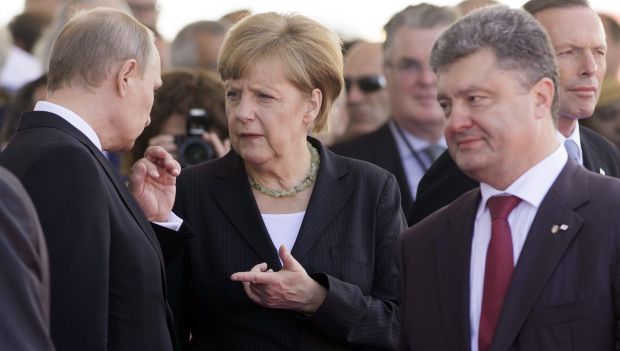Chancellor Angela Merkel told Britain on Tuesday it will not be able to cherry-pick the parts of the European Union it wants, such as the single market, without accepting principles like free movement when it negotiates its exit from the bloc.
This may have been in response to an article written by Boris Johnson, a leading backer of the Leave campaign, in the Daily Telegraph on Monday which proposed that Britain may be able to “take back democratic control of immigration” while continuing to access the single market. Merkel’s comments have made it clear that this will not be the case.
Addressing Germany’s Bundestag lower house of parliament before heading to Brussels for talks on Britain’s shock decision to leave the EU, Merkel said London would not get special treatment.
“We’ll ensure that negotiations don’t take place according to the principle of cherry-picking … It must and will make a noticeable difference whether a country wants to be a member of the family of the European Union or not,” she said.
“Whoever wants to leave this family can’t expect to do away with all of its responsibilities while keeping the privileges,” added Merkel, striking a tougher note than in the last few days.
Countries that want access to the single market must accept the principles and obligations that go with them, she said.
“That applies to Great Britain as well as everyone else,” she said, adding that Norway was not an EU member but had free access to the single market “because in return it accepts free migration from the European Union among other things”.
Freedom of movement of people is one of the basic principles of the EU, but ‘Leave’ campaigners in Britain drew much support for rejecting the bloc’s immigration rules.
Merkel said Germany was determined to maintain close ties with Britain and work to strengthen the EU.
She reiterated that it was up to Britain to initiate the next steps to leave the EU before any informal or formal negotiations about its future ties with the bloc could begin.
“I can only advise our British friends not to fool themselves … in terms of the necessary decisions that need to be made in Britain,” she said.
Once Britain had triggered Article 50, a two-year negotiation period would begin and could only be extended by a unanimous decision from all the 27 remaining EU countries, she said.
The negotiations would take into consideration the UK’s future relations with the EU. However, it is thought that talks could be extended several years longer than the two-year deadline to finalize the terms of that new relationship between them. The influence Britain had in the bloc will be diminished while it will continue to be constrained by its membership fees and rules for at least the next two years.
“For as long as the negotiations take place Britain remains a member of the EU. All the rights and duties that come with this membership are to be fully respected and held until the actual exit and that applies equally to both sides,” said Merkel.
Until Article 50 is invoked, Britain is stuck in a political impasse. Prime Minister David Cameron, who resigned last week after the referendum result, has said that initiating the withdrawal process will be a task for his successor. The Conservative Party said on Monday that a new leader should be appointed by September 2.
A YouGov poll has shown that Theresa May, the Home Secretary and a Remain supporter, narrowly beat Boris Johnson as the most popular amongst the British public to become the next Prime Minister. May received 19 percent support compared with 18 percent for Johnson. Michael Gove, the Secretary of State for Justice, came third with five percent. Jeremy Hunt, who announced his intention to run for leader, received one per cent.
Chancellor of the Exchequer George Osborne, who was expected to run for Conservative leader, has announced that he will not be a candidate. “I am not the person to provide the unity my party needs,” he wrote in the Times.
